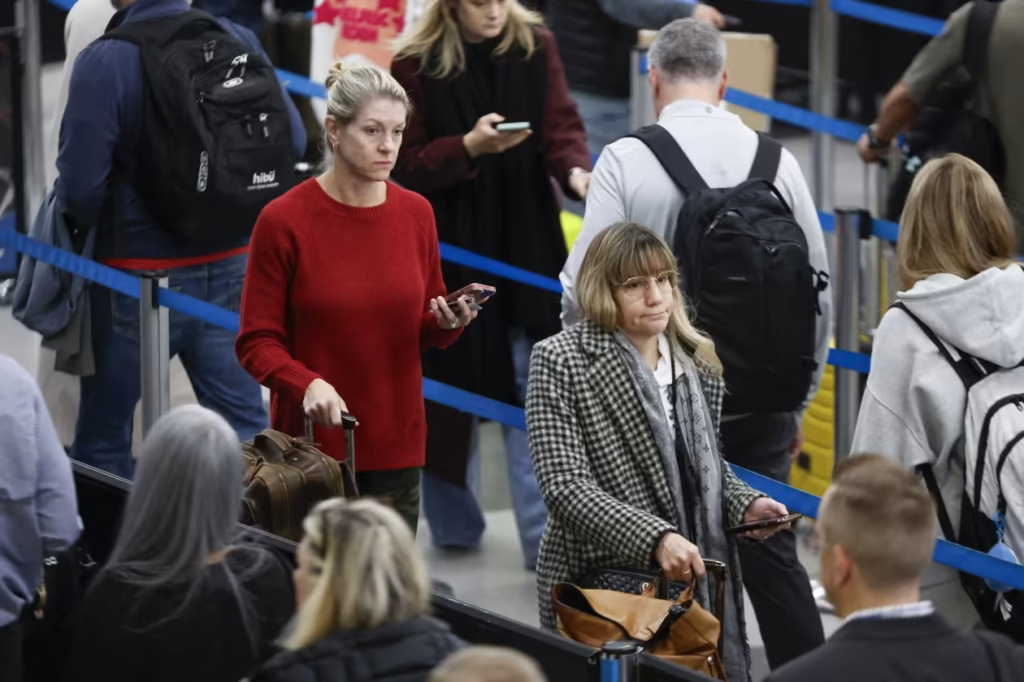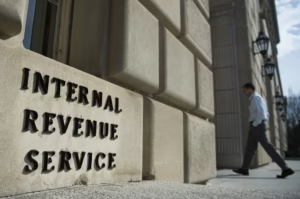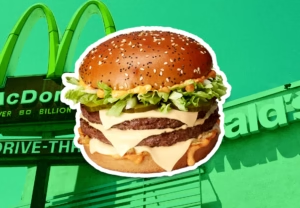Parts of the U.S. federal government could start to shut down after midnight Friday if there isn’t a joint deal to keep the government funded. This could affect people’s holiday travel plans and their wallets.
A broad spending plan that congressional leaders released on Tuesday was turned down by many Republican lawmakers on Wednesday. They were first pushed to take this stance by Elon Musk and Vivek Ramaswamy, who are co-heads of President-elect Trump’s new organisation called the “Department of Government Efficiency,” or DOGE. Then Trump and Vice President-elect J.D. Vance spoke up. They told House Speaker Mike Johnson and the other Republicans that they needed to renegotiate spending bills with the Democratic-led Senate in order to get a smaller package that included a way to raise the country’s debt ceiling.
Some people say that Musk, the billionaire CEO of Tesla Inc. TSLA -3.46% and a big Trump donor, has been made co-president by Republicans without being elected. Musk responded by writing on the social media site X, which he owns, that all he “can do is bring things to the attention of the people, so they may voice their support if they so choose.”
Trump and Vance said on X, “If Democrats say they will shut down the government if we don’t give them everything they want, then CALL THEIR BLUFF.”
If politicians can’t agree on spending bills, the government could shut down and affect some important functions. After midnight Eastern on Friday, which is the last day to extend funds, schools would be closed. One market that makes predictions, Polymarket, recently said that there was a 61% chance of a shutdown.
- Air traffic controllers and Transportation Security Administration agents are among the federal workers who are supposed to keep working but won’t get paid as usual because of the government shutdown. They will get back pay when Congress agrees on a spending plan, though. Committee for a Responsible Federal Budget, a watchdog group, said that during the record-setting 35-day shutdown that started in mid-December 2018, holiday travellers had to wait longer in queue for security because some TSA agents didn’t show up to work. Also, lack of air traffic controllers temporarily stopped travel at New York’s LaGuardia Airport and caused delays at other major airports.
- Initial public offering: The SEC has said in the past that if it ran out of money, it would have to lay off more than 90% of its staff. This would stop initial public offers (IPOs) from happening and stop them from fully overseeing the markets (SPXs).
- Social Security and Medicare: The CRFB says that Social Security checks would still be sent out, but benefits would no longer be checked and cards would no longer be issued. The watchdog group said that during a shutdown in the mid-1990s, more than 10,000 people who wanted to get Medicare were briefly turned away every day. They also said that this is not likely to happen again.
- For U.S. stocks, analysts who cover Congress for Wall Street often tell investors that any shutdown should be seen as mostly background noise. MarketWatch has said that since 1978, there have been six government shutdowns that lasted five days or more. During the four most recent ones, the S&P 500 index SPX +1.09% went up.
- About the U.S. economy: An economics research team at Goldman Sachs led by Jan Hatzius said on Wednesday that a shutdown would slow growth in the U.S. gross domestic product (GDP) by 0.15 percentage points for every week it lasted. However, growth would pick up by the same amount in the quarter after the government reopened.
- Internal Revenue Service: The IRS has said that 29,524 workers, or 30.4% of its total staff, will continue to do their jobs even if the government shuts down. If the government shut down after January 1, which would mean during tax season, 43,170 workers, or 44.5% of its staff, would have to go to work. But the CRFB said that even though at least 26,000 IRS workers who had been on leave were called back to work to get ready for tax season during the shutdown in December 2018 and January 2019, 14,000 didn’t show up to work without getting paid.
- In response, the American Federation of Government Employees says: The biggest union for federal workers told Congress to keep the government open and called the possible lack of funding a “DOGE shutdown.” In a statement, the AFGE said that its members “check our food, guard our borders, make sure holiday travel is safe, and help people who have been hurt by disasters.” More than 642,000 of them have served in the military. It is not acceptable to let them go without pay over the holidays.
- FDA, food stamps, and the National Park Service: The CRFB says that during the 2013 shutdown, the Food and Drug Administration put off almost 900 inspections. During the 2018–19 shutdown, the agency resumed some checks for high-risk products a few weeks into the closure.
This program, which is also known as “food stamps,” has usually been allowed to keep sending out payments for 30 days after a shutdown starts. During the 2013 shutdown, the National Park Service turned away visitors to more than 400 sites. However, during the 2012 shutdown, many parks stayed open but didn’t offer tourist services, which caused damage and trash to pile up. - There is talk in the U.S. military that troops will not get paid at the end of the month during the holidays if there is not an appropriation or a continuing resolution. Pentagon press secretary Maj. Gen. Pat Ryder said this at a meeting on Thursday. An Associated Press story says that about 2.1 million troops would not get paid. Ryder also said that military reservists who drill after Friday would not get paid for them, and people who work for the Defence Department and have to work during a shutdown would not get paid.





